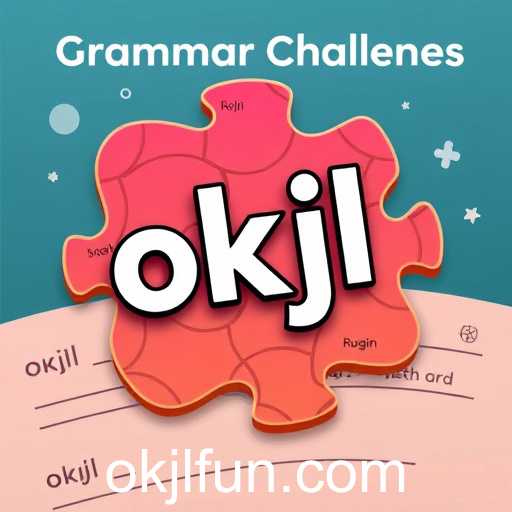In the world of language learning, 'Grammar Games' have emerged as an innovative and immensely effective tool for both educators and learners. As the digital landscape continuously evolves, these games provide an interactive platform to explore the intricate aspects of grammar, making the learning process enjoyable and accessible. The unique category under the keyword 'okjl' is particularly noteworthy, as it offers a diverse range of activities designed to challenge and engage users of all ages.
Grammar games provide a multifaceted approach to learning. They incorporate auditory, visual, and kinesthetic elements that cater to different learning styles, making them a versatile choice for educators. The 'okjl' category stands out with its tailored activities that target specific grammar rules and nuances, allowing learners to practice and internalize concepts through repetition and practice within a game format. This ensures that learning is not only fun but also effective.
One of the primary benefits of grammar games is their ability to engage students who might find traditional methods of learning grammar tedious or intimidating. Through a combination of quizzes, puzzles, and interactive activities, users are encouraged to think critically and apply their grammar knowledge in varied contexts. In particular, the 'okjl' games offer scenarios where players must solve grammar challenges to progress, incentivizing learning through achievement and progress.
Moreover, these games often feature adaptive learning technologies that adjust to a player's level, keeping them adequately challenged without feeling overwhelmed. This personalized approach not only boosts confidence but also helps in maintaining sustained interest in the subject matter. The feedback mechanisms within these games are instant and constructive, allowing players to learn from their mistakes in real-time.
Grammar games under the 'okjl' category also offer collaborative and competitive features, enabling players to engage in multi-player modes or compete against high scores. This fosters a community of learners who can share strategies, tips, and encouragement, making grammar learning a social and collective experience.
In conclusion, grammar games like those found in the 'okjl' category represent a significant advancement in educational technology. By blending learning with play, they address the diverse needs of modern learners and provide a refreshing take on mastering the complexities of language. Whether used in classrooms or for individual learning, these games pave the way for a future where grammar is not just a subject to be learned, but a skill to be enjoyed and celebrated.








